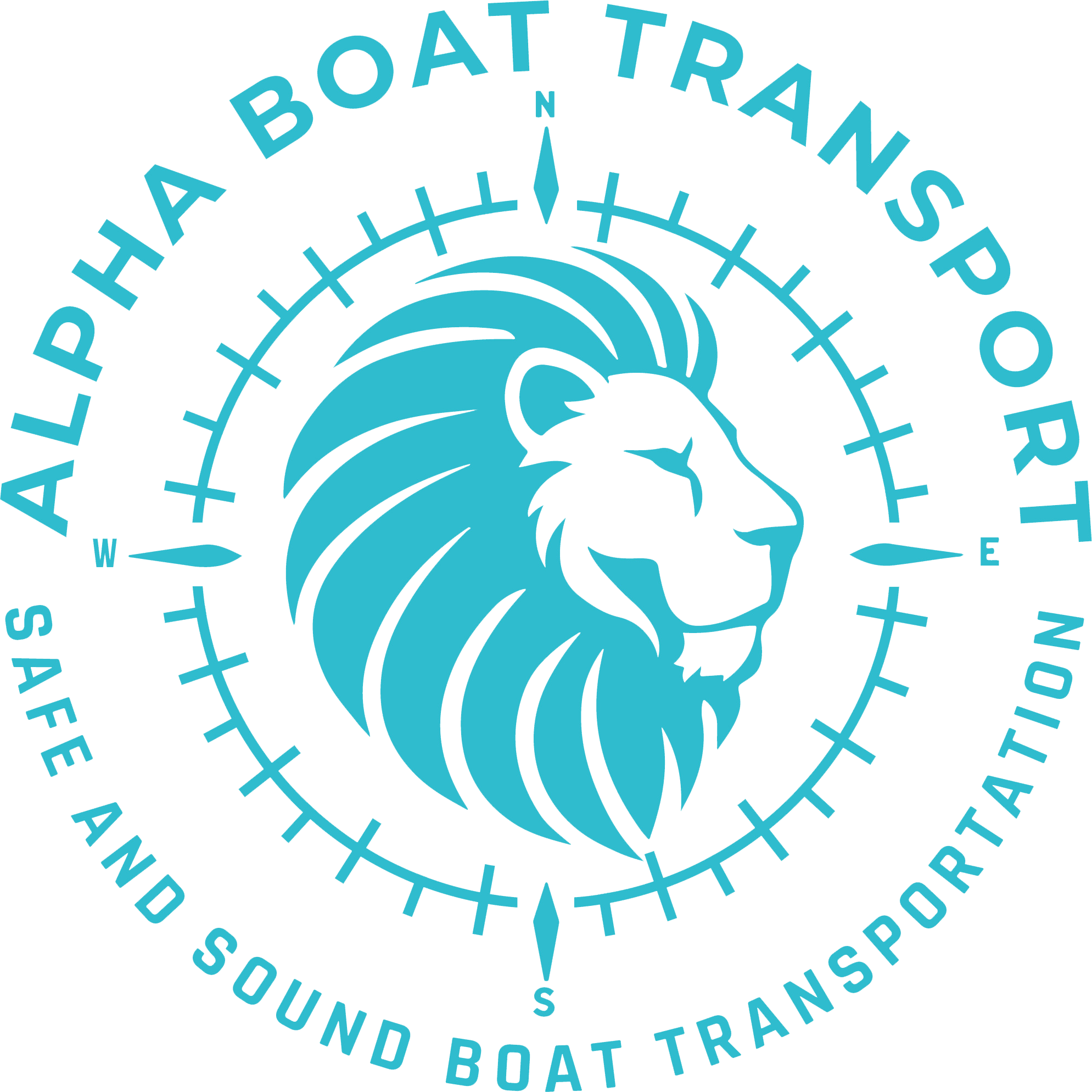Power Boat Transport
- Home
- |
- Power Boat Transport
Why Choose Alpha Boat Transport
Power Boat Transport Preparation Guide
Transporting your power boat safely and efficiently requires careful preparation. This guide provides the essential steps to help you to ensure your power boat is ready for transport, protecting it from damage and ensuring a smooth and safe and sound journey.
Alpha Boat takes care of all types of PowerBoat Transport including Bowriders, Center Consoles, Cuddy Cabins, Deck Boats, Fishing Boats, Houseboat Transport, Jet Boats, Pontoon Boat Transport, Runabouts, Ski and Wakeboard Boats, Trawlers, Utility Boats and more.
1. General Preparation Tips
Documentation
- Complete all necessary paperwork, including transport agreements and insurance documentation.
- Keep a copy of your boat’s registration and any required permits handy.
Cleaning
- Thoroughly clean the exterior and interior of your boat to prevent the spread of invasive species and to make inspection easier.
- Remove any barnacles or algae from the hull.
Inspection
- Conduct a detailed inspection of your boat, noting any existing damage. Take photos for your records.
- Check for any loose items that need to be secured.
2. Securing the Interior
Remove Personal Items
- Remove all personal items and valuables from the boat.
- Secure any loose items that cannot be removed.
Lock Cabinets and Doors
- Ensure all cabinets, doors, and windows are locked and secured.
- Use padding to protect fragile items inside the boat.
Disconnect Electronics
- Disconnect and securely store electronic devices and batteries.
- Ensure all electrical systems are turned off.
3. Preparing the Exterior
Secure Loose Parts
- Remove and securely store antennas, radar units, and any other protruding items.
- Secure hatches and ports to prevent water entry.
Protect the Hull
- Use protective covers to shield the hull from debris and weather conditions during transport.
- Ensure the hull is properly supported to prevent stress points.
4. Engine and Fuel System
Drain Fuel and Water Systems
- Drain the fuel tank to a quarter full to reduce weight and risk.
- Drain water tanks and water lines to prevent freezing and leaks.
Secure the Engine
- Secure the engine to prevent movement during transport.
- Check and secure all engine mounts and brackets.
Propeller and Outdrive
- Remove the propeller and store it securely to prevent damage.
- Ensure the outdrive is in the up position and secured.
5. Trailer Preparation
Inspect the Trailer
- Ensure the trailer is in good condition, with no rust or damage.
- Check the tires for proper inflation and tread.
Check the Brakes and Lights
- Test the trailer brakes to ensure they are functioning properly.
- Check all trailer lights, including brake lights and turn signals, for proper operation.
Secure the Boat to the Trailer
- Use high-quality straps and tie-downs to secure the boat to the trailer.
- Double-check that the boat is centered and balanced on the trailer.
6. Additional Preparations
Cover and Protect
- Use a boat cover or shrink wrap to protect the boat from weather and road debris.
- Ensure the cover is securely fastened to prevent it from coming loose during transport.
Reduce Wind Resistance
- Lower any items that could create wind resistance, such as the bimini top, T-top, or tower.
- Secure these items to prevent movement and potential damage.
7. Final Checks
Review Transport Route
- Confirm the transport route with your transport company to ensure it accommodates your boat’s size and dimensions.
- Check for any low bridges, weight restrictions, or other obstacles.
Communication
- Maintain open communication with the transport company for updates and instructions.
- Provide clear instructions for pick-up and delivery locations.
8. Post-Transport Inspection
Inspect for Damage
- Once the boat arrives, conduct a thorough inspection to check for any damage incurred during transport.
- Compare the boat’s condition to the pre-transport photos and documentation.
Reassemble and Reconnect
- Reattach any removed items, such as antennas and electronics.
- Reconnect the battery and check all systems before use.
By following these steps, you can ensure your power boat is properly prepared for transport. This will help protect your investment and ensure a smooth and stress-free transport experience with Alpha Boat Transport.

